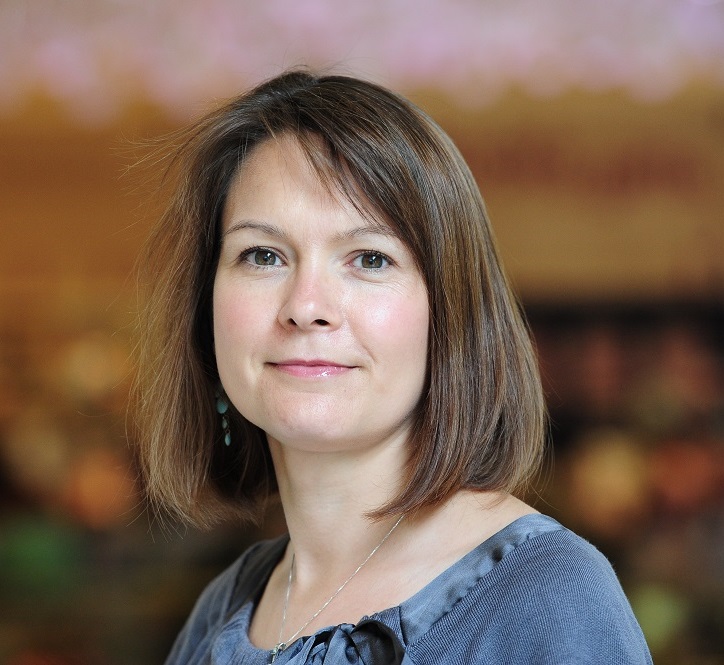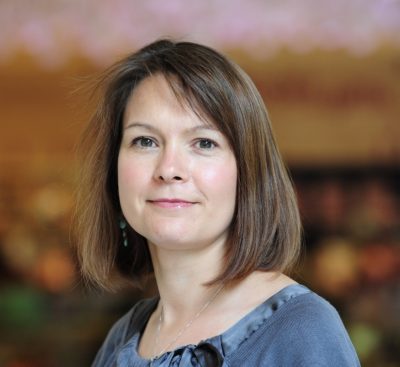

Our community’s response to our biggest challenge
Pancreatic cancer hasn’t stopped because of the pandemic, but neither have we. Our Director of Support, Research & Influencing, Anna Jewell, explains how we’ve been working harder than ever to support our whole community at this challenging time.
When the crisis hit, our first thoughts were for our community, and the many people worried about the impact on their pancreatic cancer treatment and care. Treatment for pancreatic cancer can’t wait. Even short delays to treatment and surgery can significantly reduce survival. So as the coronavirus pandemic continues to put pressure on our healthcare system, we are determined that people with pancreatic cancer won’t be left behind.
While the pandemic has given us our biggest challenge yet, our community is rising to that challenge. Here are some of the ways we’ve been speaking up for and supporting people facing pancreatic cancer during the crisis, and working hand-in-hand with frontline healthcare professionals to ensure that as many people as possible are still able to access the support and potentially life-saving treatment they need.
Supporting the pancreatic cancer community
We know that this is an especially worrying time for people facing pancreatic cancer, so we’ve been stepping up our response to support our community, while helping ease the burden on our colleagues in the NHS.
Following a sharp increase in calls to our Support Line, our specialist nurses are needed now more than ever. Many people are reporting delays or cancellations to clinical trials, chemotherapy or surgery, and we’ve been there to provide support, reassurance and information. In response to the increased demand for our support, we quickly created a range of essential information resources. These help to support people to deal with symptom management at home, and the emotional and practical impact of coronavirus and pancreatic cancer. They include a comprehensive coronavirus hub with up-to-date information, videos and our nurses’ blog about managing during the pandemic, including how to deal with stress and anxiety, manage diet and weight loss, and get help with daily challenges.
Together, our voices are stronger. As well as listening and providing support, we’ve been working to understand the biggest concerns from both people with pancreatic cancer and our wider community of healthcare professionals, and ensuring that our voices are being heard at the highest levels of government and the NHS.
This has included representing our community in regular discussions with NHS England, the Cancer Policy Team in Scotland, and working with the Wales Cancer Alliance to hold Welsh Government to account. We submitted vital written evidence about how people with pancreatic cancer are being affected by the pandemic to UK Parliament Health and Social Care Committee’s inquiry into delivering core NHS services during the pandemic. And with the support of Amy Callaghan MP, we demanded answers from the panel on how NHS England intends to deal with the backlog of pancreatic cancer surgery cases.
We won’t stop representing our community during the pandemic and beyond.
If your own pancreatic cancer treatment or care is being affected, or you’re worried it might be, please let us know through our short survey. If you have any questions or worries about coronavirus, you can speak to our specialist nurses on our free Support Line.
Standing together with healthcare professionals
The coronavirus pandemic poses a major challenge to healthcare professionals caring for people with pancreatic cancer. We’ve been working closely with clinicians across the UK who are determined to continue safely treating as many people as possible. To help achieve this, we created the Pancreatic Cancer treatment during COVID-19 (PCC) Network, an initiative bringing healthcare professionals together to discuss and share approaches to continuing treatment across the UK.
Coming together to solve unparalleled challenges
As part of the network we’ve hosted a series of webinars. Each has been attended by more than 50 pancreatic cancer consultants across the UK, giving them the opportunity to discuss the challenges they face and potential solutions. During the first webinar, clinicians in Verona shared their experience of managing pancreatic cancer during Italy’s coronavirus outbreak. Subsequent webinars have focused on how to maintain the most effective pancreatic cancer treatment during the pandemic.
This coordinated approach has not only brought together the pancreatic cancer treatment community like never before, but the shared knowledge and experience has also empowered clinicians to innovate and fight to continue treatment and save lives.
Supporting the pancreatic cancer research community
All lab-based research and clinical trials across the UK have been suspended due to coronavirus. But we’ve been doing all we can to support our researchers to continue their vital work investigating pancreatic cancer, for example by using computer-based techniques to analyse research findings at home. Many researchers cannot carry on with their work, so we’ve created an online hub with training resources and webinars to ready our research community for a quick recovery after the pandemic.
We are proud to support our researchers who have joined the fight against coronavirus, whether by returning to frontline clinical duties, helping with testing or coordinating the national effort towards developing treatments and a vaccine.
It’s vital that we’re able to restart research as quickly and safely as possible after the pandemic. To ensure this, we’ve partnered with other research charities to call on the Government to protect research roles through its job retention scheme, and to support the recovery of medical research through dedicated funding.
Recovering from the pandemic
We’re proud to be playing our part in bringing together and supporting an active network of research and healthcare professionals. We’re hopeful that as we move through the recovery phase and then out of this crisis into a different world, this shared commitment and collaboration will continue to benefit people with pancreatic cancer.
Pancreatic cancer cannot afford any more setbacks. So as the NHS begins to recover from the pandemic, we’ll be calling for the treatment of people with pancreatic cancer to be prioritised, and working harder than ever to give people with pancreatic cancer the chance of a better future.